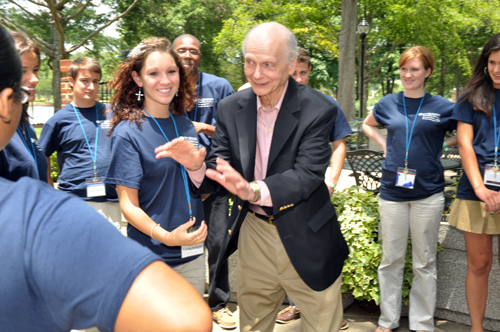
The last presidential debate offered little in the way of focus on education and related policy. آج گلوبل سرچ فار ایجوکیشن سیریز میں, I continue my conversations with education luminaries to discuss the issues that we believe will be a priority for the next President of the United States.
My imaginary Secretary of Education this week is former U.S. Secretary of Education and past Governor of South Carolina, رچرڈ ولسن ریلی. A lifelong advocate for high-quality education, many Americans (according to The Christian Science Monitor) regard Riley as “one of the great statesmen of education of the 20th century.” Serving for both of President Clinton’s terms, Riley helped to launch many historic initiatives to raise academic standards, improve instruction for the poor and disadvantaged, modernize schools, expand grant and loan programs for higher education, and improve teaching, among other significant advances.
فی الحال, Dick Riley speaks, provides leadership and serves in an advisory and collaborative capacity with many entities to promote education improvement in the United States and abroad.
وفاقی حکومت کے کردار کشمیر میں کیا ہونا چاہئے- 12 تعلیم? بہت زیادہ فنڈنگ تعلیمی اصلاحات کے لئے اور اسے خرچ کیا جانا چاہئے اہم کیا علاقوں میں دی جانی چاہئے کہ کس طرح?
The federal government should establish national priorities, such as helping disabled children (IDEA) and low-income children (سرخی 1). Those big national priorities that generally are funded by the federal government should continue to be part of the national policy.
The other part of national education policy should be about encouraging and challenging states to improve and to reform education through innovation. We should continue to call for challenging academic standards in core subjects, allowing public charter schools as part of choice, encouraging high teacher performance – those kinds of things are part of the President’s reform package. All of those measures should be put in place by the states. The states should be submitting plans for getting those things done. So that’s how I see the role of federal government policy.
Continuing to fund education during a time of economic recession is one of the main strengths of President Obama. In the middle of a recession that was not of his making, a recession that was handed to him when he took office as president, Obama made education a priority. He recognized that this is a knowledge-based economy, not just nationally, but globally. He recognized that we could not turn around an economy if our education system was failing. He took the initiative to prioritize education. I thought and still think that this was a brave and courageous thing to do. اور, frankly, I think it has worked.
کیا تعلیم کے پیشے کو بہتر بنانے پر اپنی پوزیشن ہو گی, سمیت بھرتی, اساتذہ کی تربیت, معاوضہ, کم آمدنی والے اسکولوں کو تفویض اور?
I have enormous respect for teachers. Not all of our teachers are high-quality teachers but certainly the greater percentages of them are. مزید, they generally are committed to moving through all the areas of education reform, such as technology. So I have a very good feeling for teachers.
Countries that seem to rank highest in education right now, like Finland, have prioritized teacher recruitment. They get the very top students for the education profession. They do this by offering higher compensation and other benefits. It works. I think we need to do more in that regard, particularly in terms of finding ways to attract the brightest students to the profession of teaching.
I do not think teachers are being compensated as professionals, and they should be. When you pay teachers more, you can demand more. اس کے علاوہ, I am a strong believer in the benefit of teachers working collaboratively with each other. I believe in high-quality teachers helping to improve those that are not. I do not believe in putting one teacher in the classroom and saying that’s it, you’re on your own. When teachers work in teams, students also will learn the importance and value of working in teams.
Right now we seem to send our best teachers to the best K-12 schools. کم آمدنی والے اسکول جو جدوجہد کر رہے ہیں انھیں اساتذہ ملتے ہیں جو بہترین نہیں ہیں. The states have to change that situation and put the priority on placing the top teachers in low-income schools. It would be a great help if we could move in that direction.
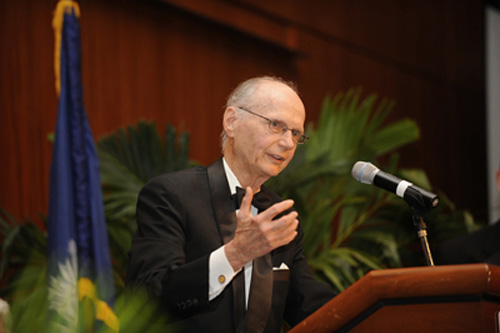
What kinds of things could the states do to make this happen?
مثال کے طور پر, a school in a poor community could provide a residence for a young, high-quality teacher to live in that community. Other incentives could be provided to encourage better teachers to move into low-income school areas. And assistance could be provided for current teachers in low-income schools to gain National Board certification and other professional development to improve their teaching skills.
اسکول کا انتخاب پر آپ کی پوزیشن کیا ہو گا, چارٹر اسکولوں اور ان کی توسیع بھی شامل ہے, نجی اسکولوں, واؤچر, اور ناکافی عملے اور سہولت فراہم کی کم آمدنی والے اسکولوں میں سرمایہ کاری?
I very much support public school charters. جیسا کہ آپ جانتے ہو, I was involved in the Clinton administration and we supported charter schools as an option for school boards to develop more public school choice and more school creativity. As with opening any new school, granting a charter does not automatically guarantee success; but generally it has proven to be a good option for students and families, as well as has spurred other creative ideas within the system.
I firmly oppose vouchers. Public schools are struggling for resources and I believe the idea of shifting a massive amount of money over into the private schools is a mistake. I support quality private schools. I support quality parochial schools. But I will continue to oppose strongly the use of public money for private or parochial school vouchers.
ملکی اور بین الاقوامی کامیابی کے فرق سے نمٹنے کے لئے آپ کی حکمت عملی کیا ہو گا, ابتدائی بچپن کی تعلیم پر اپنی پوزیشن سمیت, معیاری ٹیسٹنگ, ماڈیولر تعلیم لائن, اور استاد / پرنسپل احتساب?
Achievement gaps are a major issue, and we need to deal with them.
سب سے پہلے, I believe we need to look at both domestic and international comparisons in terms of setting our standards and our strategies for improvement.
The only way you can close gaps in the long term is to invest more in early childhood education. All students improve as they move through the system. تاہم, the gap becomes very difficult to close, or even narrow, when local communities don’t make pre-school a priority. Early childhood education involves a lot of things, including parental involvement and proper healthcare to ensure children are better developed by the time they get to kindergarten. We need to focus on this, especially in low-income areas. I very much support strengthening early childhood education.
With regard to standardized testing, that is very important. But we need multiple measures of assessment to determine a child’s (and school’s) academic status and growth. Formative tests that are given on a regular basis and provide timely feedback to teachers, students and their parents are particularly effective in determining what a child knows or doesn’t know and how that child’s instruction should be adjusted to gain continuous improvement.
Evaluating teachers and principals has always been difficult and it’s receiving a lot of discussion nowadays, as it should. I believe that student achievement, especially as far as improvement is concerned, is an important part of evaluating teachers. تاہم, I do not believe that it should be the only method of assessment used. A thoughtful school principal will look at all the different factors that affect good teaching. He or she will develop a system within the school where teachers are collaborating and helping each other to do better, a system where students are learning from students. Observing a teacher’s work in the classroom (either sitting in or using videos) and assigning mentors to work with teachers on teaching methods are other ways that performance can improve.
Evaluating a teacher also depends a lot on who the students are. A teacher with very bright students in a well-to-do suburb is more likely to achieve more in the classroom than a teacher who has students from a very poor neighborhood where the parents (who possibly didn’t have a good education themselves) are struggling. It’s very hard to compare teachers in these situations. I am a great believer in looking at individual student improvement rather than how students are doing side by side. If the students are improving, my feeling is the teacher must be doing a pretty good job.
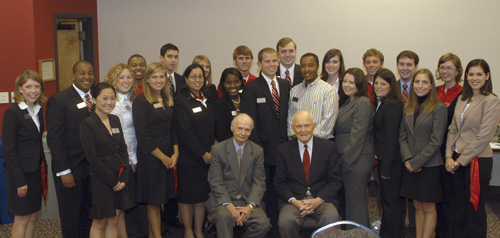
نصاب میں اصلاحات پر اپنی پوزیشن کیا ہو گا, فنون کے کردار سمیت, اخلاقیات کے علاج, اور مرکب آن لائن سیکھنے کو اپنانے?
Technology is now clearly a part of our education system and will continue to change the way we provide education today and in the future. I personally like the blended learning ideas – ہے, a blend of online and face-to-face interaction with students. Online learning allows us to reach out in many ways. اس کے علاوہ, it can be done quickly, from any location and at all times of the day. Blended learning will be an important part of education.
I strongly support music and the other arts in education. Enhancing the creative side of learning is extremely important, and studies have shown that music instruction has a beneficial effect on learning math and other core subjects. Learning to be creative, informed and well-rounded is important for our economy and it is important for our world.
Ethics is a very important part of growing up and learning. Parents have a strong role to play in that but so do schools and teachers. Positive role models are one of the best ways to illustrate strong ethics.
کیا زیادہ تعلیم یافتہ کم آمدنی والے طالب علموں کے لئے کالج سستی بنانے کے لئے کس طرح پر اپنی پوزیشن ہو گی?
The cost of a college education is becoming a big national problem.
I am supportive of early college high schools. This idea of students finishing high school with one and in some cases two years of college behind them will save students money and time. The total cost of a four-year degree also can be reduced by spending the first two years at a community or technical college. This is good.
In President Obama’s plan, he encourages cost containment by colleges and universities. I think they all should be aware of this, paying attention to it and doing something about it. Pell grants, which the President has increased by more than 50%, are a tremendous benefit to low-income students. اس کے علاوہ, significant cost savings to students, their families and all taxpayers have resulted from the federal Direct Lending program. With the community colleges and early college high schools programs, plus cost containment, Pell grants and Direct Lending, دوسروں کے درمیان, we all should be able to work together to make college more affordable.
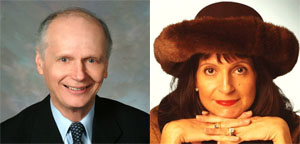
Photos courtesy of Riley Institute at Furman University and Nelson, Mullins, Riley & Scarborough L.L.P.
تعلیم بحث میں مزید مضامین کے لئے 2012 سیریز: تعلیم بحث 2012 - ہاورڈ گارڈنر, تعلیم بحث 2012 - ڈیانے Ravitch , تعلیم بحث 2012 - اینڈی Hargreaves نے , تعلیم بحث 2012 - لنڈا ڈارلنگ-ہیمنڈ
میںn عالمی تلاش برائے تعلیم, سر مائیکل باربر سمیت میرے ساتھ اور عالمی سطح پر معروف فکری رہنماؤں (برطانیہ), ڈاکٹر. مائیکل بلاک (امریکہ), ڈاکٹر. لیون Botstein (امریکہ), پروفیسر مٹی Christensen کے (امریکہ), ڈاکٹر. لنڈا ڈارلنگ-ہیمنڈ (امریکہ), ڈاکٹر. مادھو چوہان (بھارت), پروفیسر مائیکل Fullan (کینیڈا), پروفیسر ہاورڈ گارڈنر (امریکہ), پروفیسر اینڈی Hargreaves نے (امریکہ), پروفیسر کریں Yvonne ہلمین (نیدرلینڈ), پروفیسر کرسٹن Helstad (ناروے), جین Hendrickson نے (امریکہ), پروفیسر گلاب Hipkins (نیوزی لینڈ), پروفیسر Cornelia Hoogland (کینیڈا), مسز. چینٹل کوفمین (بیلجیم), ڈاکٹر. Eija Kauppinen (فن لینڈ), سٹیٹ سیکرٹری Tapio Kosunen (فن لینڈ), پروفیسر ڈومینک Lafontaine (بیلجیم), پروفیسر ہیو Lauder (برطانیہ), پروفیسر بین لیون (کینیڈا), رب کین میکڈونلڈ (برطانیہ), پروفیسر بیری McGaw (آسٹریلیا), شیو ندار (بھارت), پروفیسر R. نٹراجن (بھارت), ڈاکٹر. PAK NG (سنگاپور), ڈاکٹر. ڈینس پوپ (امریکہ), شریدر رازگوپالن (بھارت), ڈاکٹر. ڈیانے Ravitch (امریکہ), سر کین رابنسن (برطانیہ), پروفیسر Pasi Sahlberg (فن لینڈ), Andreas کی Schleicher (پیسا, او ای سی ڈی), ڈاکٹر. انتھونی Seldon نے (برطانیہ), ڈاکٹر. ڈیوڈ Shaffer کے (امریکہ), ڈاکٹر. کرسٹن عمیق کر رہے ہیں (ناروے), چانسلر اسٹیفن Spahn (امریکہ), ایوز Theze (اسکول Français کی امریکی), پروفیسر چارلس Ungerleider (کینیڈا), پروفیسر ٹونی ویگنر (امریکہ), سر ڈیوڈ واٹسن (برطانیہ), پروفیسر Dylan کے Wiliam (برطانیہ), ڈاکٹر. مارک Wormald (برطانیہ), پروفیسر تیو Wubbels (نیدرلینڈ), پروفیسر مائیکل نوجوان (برطانیہ), اور پروفیسر Minxuan جانگ (چین) وہ تمام اقوام کو آج سامنا ہے کہ بڑی تصویر تعلیم سوالات دریافت کے طور پر. تعلیم کمیونٹی پیج کے لئے گلوبل تلاش
C. M. روبن وہ ایک موصول ہوئی ہے جس کے لئے دو بڑے پیمانے پر پڑھا سیریز کے مصنف ہے 2011 میں Upton سنکلیئر ایوارڈ, “تعلیم کے لئے گلوبل تلاش” اور “کس طرح پڑھیں گے?” انہوں نے تین bestselling کتابوں کے مصنف ہیں, سمیت Wonderland میں یلس اصلی.


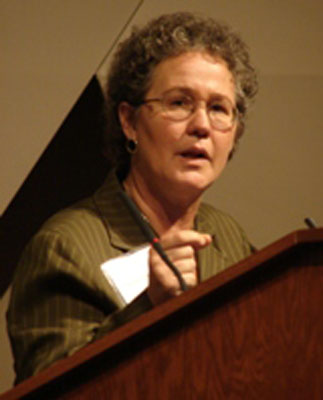
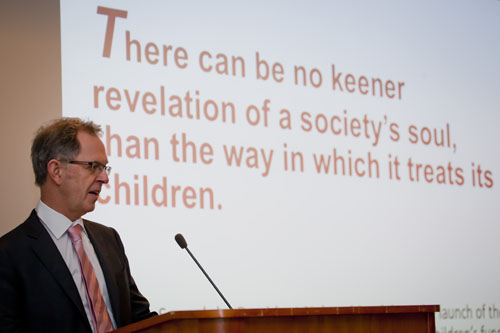
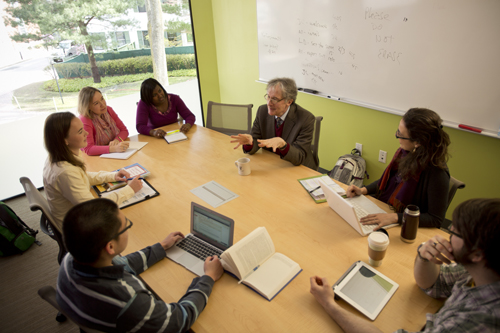
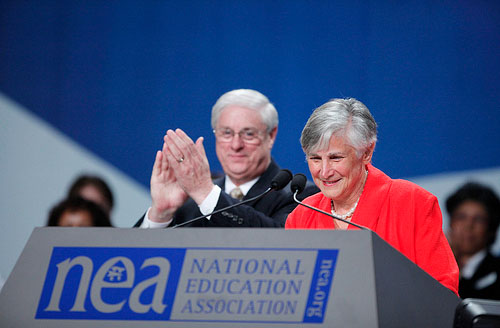
حالیہ تبصرے